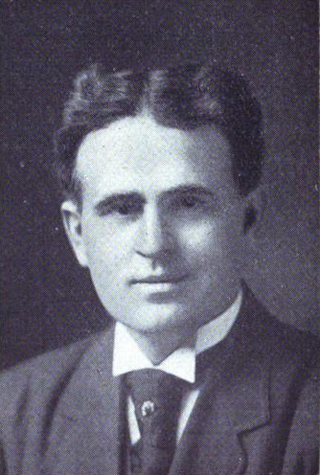Top Qs
Timeline
Chat
Perspective
Joseph F. O'Connell
American politician From Wikipedia, the free encyclopedia
Remove ads
Joseph Francis O'Connell (December 7, 1872 – December 10, 1942) was an American lawyer, academic, and politician who served as a U.S. Representative from Boston, Massachusetts from 1907 to 1911.
Remove ads
Early life and education

Born in Boston, Massachusetts, O'Connell attended the Mather School of Boston and prepared for college at St. Mary's Parochial School. He graduated from Boston College in 1893. While at Boston College, O'Connell and Joseph Drum helped create the first Boston College football team.[2] O'Connell graduated from Harvard University Law School in 1896, was admitted to the Suffolk County bar in 1897, and commenced the practice of law in Boston.
Remove ads
U.S. Representative
O'Connell was elected as a Democrat to the Sixtieth and Sixty-first Congresses (March 4, 1907 - March 3, 1911). In 1908, he was re-elected by just 4 votes[3] over former Boston City Clerk J. Mitchel Galvin.[4]
He was an unsuccessful candidate for renomination in 1910.[5] In a three-way primary with former Representative William S. McNary and Boston City Councilor James Michael Curley, O'Connell came in second behind Curley.[6]
Remove ads
Later career
After his defeat in 1910, O'Connell resumed the practice of law in Boston and remained active in politics. He served as a delegate to the 1912 Democratic National Convention.[citation needed]
In 1914, O'Connell was appointed to the National Conference on Uniform State Laws by Governor David I. Walsh. He was re-appointed by each succeeding governor and served until his death.[citation needed]
In May 1917, O'Connell was elected to serve as a member of the Massachusetts Constitutional Convention, representing the 12th congressional district.[7] The convention convened on June 6, 1917 and adjourned on August 13, 1919.[8]
O'Connell served as a delegate to the 1920 Democratic National Convention.[citation needed]
In 1923, O'Connell served as member of the State commission to revise the charter of the city of Boston in 1923.[citation needed]
O'Connell unsuccessfully ran for United States Senate in 1930 and Mayor of Boston in 1933.[citation needed]
Personal life
On November 23, 1910, O'Connell married Marasita Lenahan, daughter of his former Congressional colleague John T. Lenahan, at St. Mary's Church in Wilkes-Barre, Pennsylvania.[9] The couple had 11 children.
He was Professor of Law and vice president of the board of trustees of Suffolk Law School in Boston.[citation needed]
Death
O'Connell died in Boston on December 10, 1942, three days after his 70th birthday and was interred at St. Joseph's Cemetery in West Roxbury, Massachusetts.
References
External links
Wikiwand - on
Seamless Wikipedia browsing. On steroids.
Remove ads

